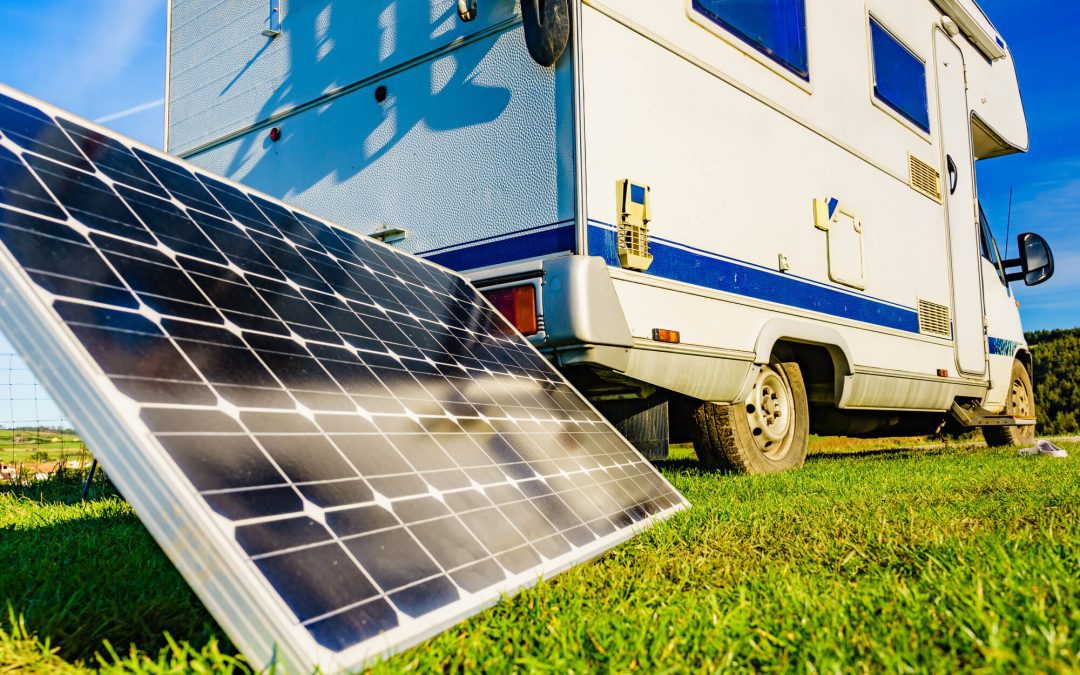Keeping your RV powered up and running smoothly doesn’t have to be complicated. Whether you’re heading out for a weekend getaway or living on the road full-time, knowing how to manage your RV’s power is essential. In this guide, we’ll break RV power management down in simple, straightforward terms so you can stay powered up and stress-free.
How Your RV’s Power Works
Your RV has two main ways to get power: shore power and onboard power. Shore power is the electricity you plug into at a campsite or RV park. Depending on your RV’s setup, it’s usually 30 or 50 amps. Onboard power comes from your RV’s batteries, an inverter, and sometimes a generator. This system keeps your lights, appliances, and gadgets running when you’re not plugged in.
The batteries are the heart of your RV’s power system. They store energy and power everything from your lights to your fridge. Most RVs use either lead-acid or lithium batteries. Lithium batteries are lighter, last longer, and charge faster but cost more upfront.
RV Power Management Tips for Using Power Wisely
Every device in your RV uses a certain amount of power, and understanding how much can help you make smarter choices. Big appliances like air conditioners and microwaves use a lot, while things like LED lights and phone chargers barely make a dent.
Start by keeping track of your power usage. Many modern RVs have built-in monitors, or you can buy one to keep tabs. Switching to energy-efficient appliances and LED lighting is another easy way to cut back. And if you’re running on batteries, try to use big appliances sparingly to avoid draining them too quickly.
Plugging Into Shore Power
When you hook up to shore power, make sure everything matches up. Double-check the outlet for any damage, and use a multimeter if you’re unsure about the voltage. Always use a surge protector to protect your RV from unexpected power surges or voltage spikes.
If your RV is built for 50 amps, but the campground only has 30-amp outlets, you’ll need an adapter. Just remember to watch your power usage in this case since you’ll have less power to work with and could trip the breaker.
Keeping Your Batteries Healthy
Take good care of your batteries to make them last longer. For lead-acid batteries, check the water levels, clean the terminals, and avoid letting them run empty. Lithium batteries need less maintenance, but it’s still a good idea to keep them at moderate temperatures and avoid over-discharging them.
If you like camping in remote areas, solar panels are a great addition. They let you recharge your batteries without needing a generator or shore power. Pairing solar panels with a charge controller will help you get the most out of them and keep your batteries safe.
Using a Generator the Right Way
Generators are a handy backup for when you need extra power, but they should be used wisely. They’re great for running high-power appliances or recharging batteries, but they can be noisy and use a lot of fuel.
Always set your generator on a stable surface away from your RV’s windows and vents to avoid carbon monoxide buildup. Follow the maintenance instructions in the manual to keep it running smoothly, and be respectful of quiet hours if you’re at a campground.
RV Power Management Problems
Even if you’re careful, power issues can happen. If your RV suddenly loses power, check your breaker panel to see if anything has tripped. Look at your battery levels and connections to make sure everything’s in good shape. You can also test the power source with a multimeter to rule out issues outside your RV.
If you’ve tried these steps and still can’t figure it out, don’t hesitate to call a professional RV technician for help.
With a little know-how and the right tools, you’ll be ready to hit the road and enjoy your adventures without any hiccups.
FAQs: Your RV Power Management Questions Answered
How long will my RV batteries last?
It depends on the type of battery and how well you take care of it. Lead-acid batteries usually last 3-5 years, while lithium batteries can last 10 years or more.
Can I run my air conditioner on batteries?
Most RVs aren’t set up for this unless you have a big battery bank and a powerful inverter. Using shore power or a generator for your AC is usually better.
Do I need a surge protector?
Yes! A surge protector can save your RV from costly damage caused by power surges or bad campground wiring.
What size generator should I get?
It depends on what you need to power. A 2,000-watt generator is enough for small appliances, but you’ll need something bigger—like 3,000 watts or more—to run your air conditioner.
Is solar power worth it for my RV?
If you love camping off-grid, solar power is a great way to keep your batteries charged without running a generator. It’s an investment but can pay off in convenience and fuel savings.
Chief RV offers RV inspection services to Montgomery, Grimes, Harris, and Walker counties in Texas. Contact us to schedule an appointment today.

